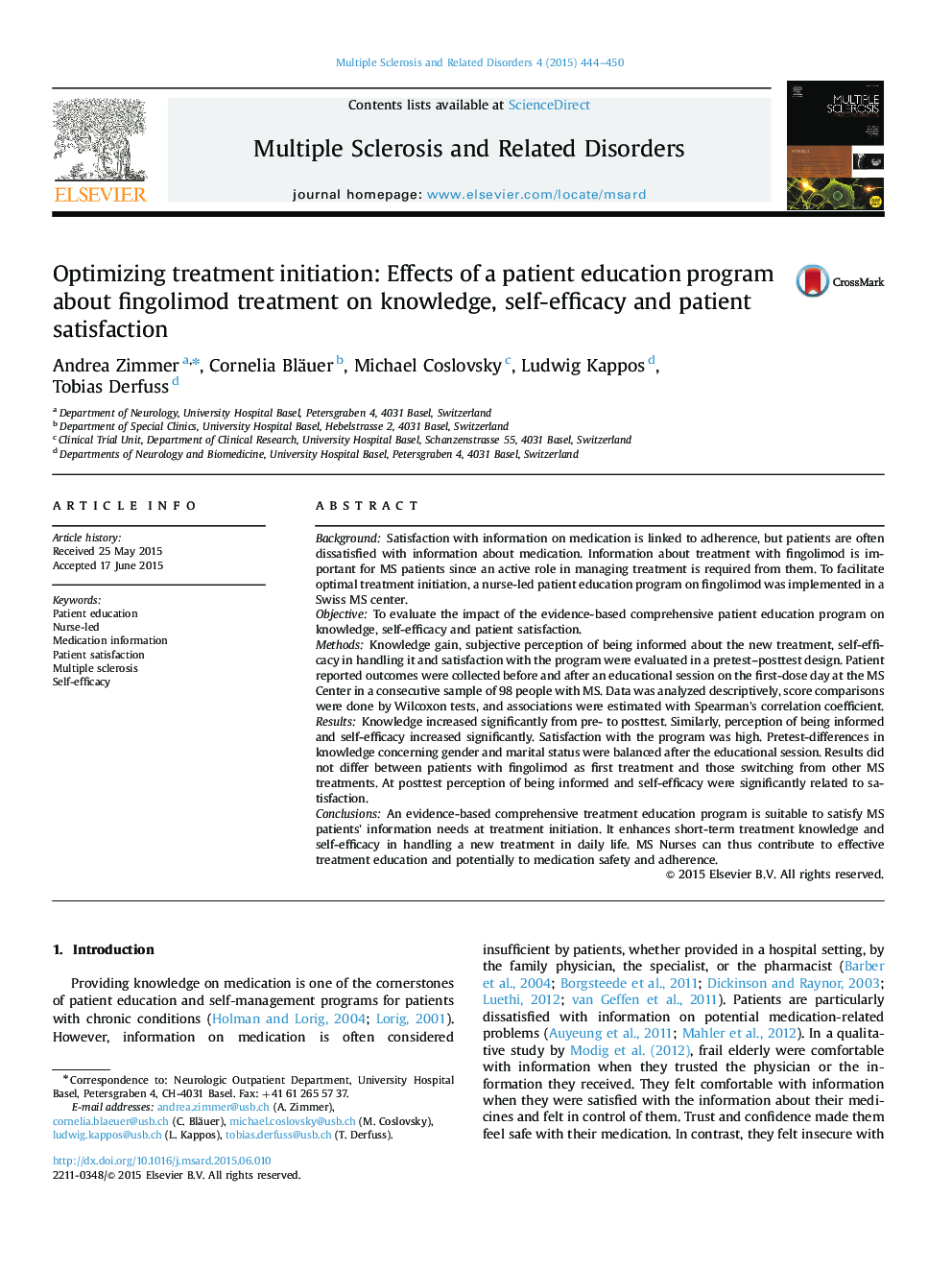| Article ID | Journal | Published Year | Pages | File Type |
|---|---|---|---|---|
| 5912709 | Multiple Sclerosis and Related Disorders | 2015 | 7 Pages |
â¢Effective treatment education supports MS-patients with fingolimod treatment.â¢Treatment education needs to be comprehensive and tailored to patients' needs.â¢It satisfies patients' information needs at treatment initiation.â¢It enhances knowledge and self-efficacy in handling a treatment in daily life.â¢Nurse-led information programs contribute to effective treatment education.
BackgroundSatisfaction with information on medication is linked to adherence, but patients are often dissatisfied with information about medication. Information about treatment with fingolimod is important for MS patients since an active role in managing treatment is required from them. To facilitate optimal treatment initiation, a nurse-led patient education program on fingolimod was implemented in a Swiss MS center.ObjectiveTo evaluate the impact of the evidence-based comprehensive patient education program on knowledge, self-efficacy and patient satisfaction.MethodsKnowledge gain, subjective perception of being informed about the new treatment, self-efficacy in handling it and satisfaction with the program were evaluated in a pretest-posttest design. Patient reported outcomes were collected before and after an educational session on the first-dose day at the MS Center in a consecutive sample of 98 people with MS. Data was analyzed descriptively, score comparisons were done by Wilcoxon tests, and associations were estimated with Spearman's correlation coefficient.ResultsKnowledge increased significantly from pre- to posttest. Similarly, perception of being informed and self-efficacy increased significantly. Satisfaction with the program was high. Pretest-differences in knowledge concerning gender and marital status were balanced after the educational session. Results did not differ between patients with fingolimod as first treatment and those switching from other MS treatments. At posttest perception of being informed and self-efficacy were significantly related to satisfaction.ConclusionsAn evidence-based comprehensive treatment education program is suitable to satisfy MS patients' information needs at treatment initiation. It enhances short-term treatment knowledge and self-efficacy in handling a new treatment in daily life. MS Nurses can thus contribute to effective treatment education and potentially to medication safety and adherence.
